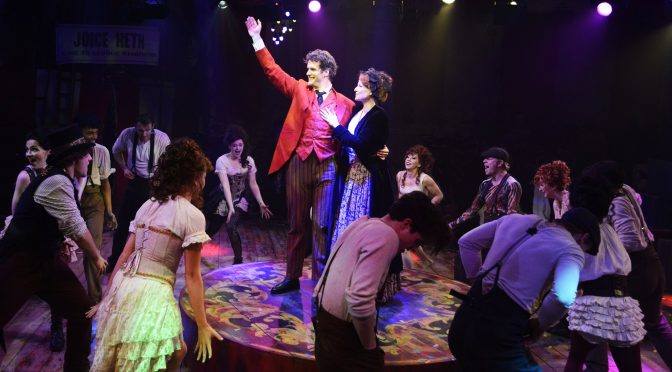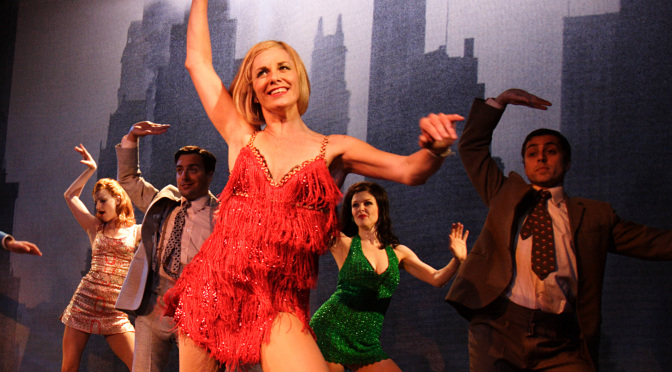While Anne-Marie Duff is no stranger to acclaim, certainly not on this blog, her casting as the heroine in Cy Coleman and Dorothy Fields’ masterpiece marks her first effort in musical theatre. Of course, plenty of actors who aren’t singers do well in musicals. If you want to add Duff to that list, then this is a great start. Her Charity is a moving figure, but her singing makes you wince, which seems a shame with such wonderful songs. Nonetheless, Duff’s “laughing and giggling” dance hall hostess is often brilliant, her heartbreak and hope visceral. It’s a star turn not to be missed – unfortunately, this isn’t true of the rest of the production.
The twist from director Josie Rourke is to set the show roughly around Andy Warhol’s Factory. And this turns into a dead end. Sweet Charity is, surely, a piece from the 1960s in dialogue with the 1950s, tackling the changes in society between the decades. So adding Warhol at least needs explaining. Instead we get clever touches – Charity’s encounter with a film star (played rather flatly by Martin Marquez) includes a screen-print portrait – that tend to prove cumbersome. And no Warhol figure actually appears (I can’t be the only one with a literal mind expecting cult leader Daddy Brubeck to don a silver wig). If the idea is to comment on Charity or the way she is treated, it was lost on me.
Rourke has a conviction in her direction that she certainly passes on to the ensemble and they work hard. But they don’t excite. It’s Duff’s show – to a fault – as the rest of the cast fail to individuate their roles. The choreography provides another star turn, with Wayne McGregor stepping into the legendary Bob Fosse’s shoes. The connections he draws are respectful and there’s no shortage of invention. But there’s a suspicion that the cast aren’t quite up to his demands on them. It’s never a question of energy, although too much of that comes from a revolving stage, but when even the hit number Rhythm of Life lacks excitement, you know something has gone wrong.
The Warhol concept interrupts the flow of the show. We’re presented with set piece numbers, prepared by The Factory crew, too frequently containing some gimmick. It’s hard to imagine why, but we’re not allowed to get caught up in Charity’s world. The momentum of the show and its structure suffer as a result. It’s all fits and starts. Ultimately, the story’s bold end, when Charity’s romantic hopes come crashing down, is simply sour. Only Duff manages to inject any ambiguity, and the suggestion that Charity might pick herself up and be OK is too slim. With a piece notable for its cynicism, more bleak isn’t needed. It would be nice to be more charitable but this production isn’t sweet.
Until 8 June 2019
Photo by Johan Persson



